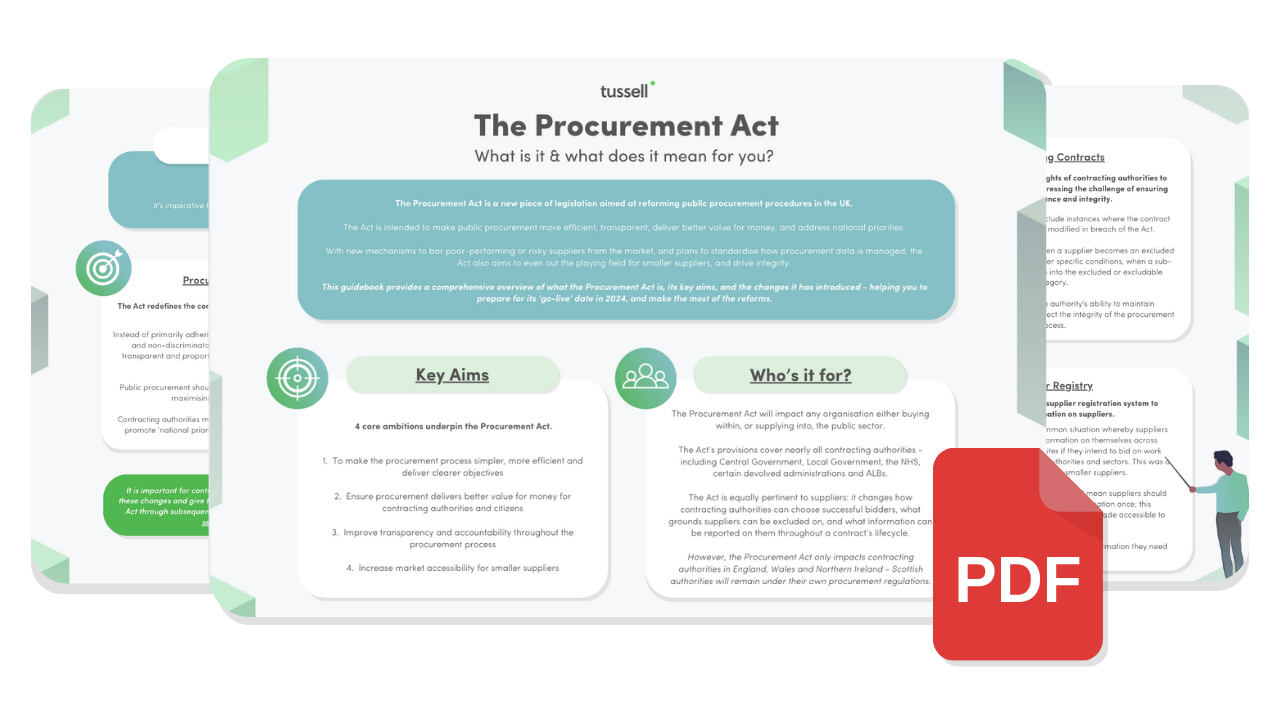An article by Gus Tugendhat, Tussell founder, for Construction News.
“The collapse of Carillion has raised many questions about the industry, not least the concentration of public sector contracts with a small number of large contractors.
As Cabinet Office minister David Lidington said recently: “We in government have started to look at lessons we might want to learn in terms of how we go about contracting […] whether we want to revisit the question of seeking best value for money by getting large contractors in to manage wide-ranging, complex projects.
“That inevitably means that you have a limited number of potential contractors.”
Public procurement is big business – a marketplace worth £223bn in 2017, equivalent to approximately 10 per cent of GDP. And construction is by far the biggest sector within it, accounting for 25 per cent of the total value of contracts awarded last year.
Steady progress
Against the backdrop of increasing public scrutiny of large companies winning government contracts, government procurement analyst Tussell has found that the UK government is making steady progress in diversifying its supply chain – particularly in the construction sector.
An overlooked fact is that more SMEs are now winning more government contracts than ever before.
“Widening the base of SMEs in the sector is crucial to achieving the government’s pledge to spend £1 in every £3 with SMEs by 2022"
In 2017, 67 per cent of suppliers that won public sector construction contracts were SMEs; this was up from 64 per cent in both 2015 and 2016. These firms are spread right across the country: three-quarters of construction suppliers in 2017 were based outside of London and the South-east.
Given the prominence of construction in public procurement, widening the base of SMEs in the sector is crucial to achieving the government’s pledge to spend £1 in every £3 with SMEs by 2022.
Political will
Diversification away from large suppliers is a good thing. Small businesses account for the vast majority of companies in the UK and can be real drivers of economic growth, creating employment opportunities for local communities and generating income.
Tussell’s data suggests the political will is there to bring ever more SMEs into the public sector supply chain.
But to maintain this promising trend of more SMEs competing for public contracts, the government must support efforts to give SMEs the tools to bid for big jobs, and ensure they are considered on merit rather than on the size of their balance sheet.
The government must also make sure that winning contracts translates into revenue for SMEs. For example, departments should monitor whether SMEs are getting a fair share of frameworks on which they are listed.
Greater transparency around public contracts is already helping to level the playing field between big and small suppliers.
Keeping up the pressure on this area is crucial if supplier inclusivity is to improve further.
Gus Tugendhat is the founder of Tussell, a data provider of government procurement analysis”
Read the full article on the Construction News website.












